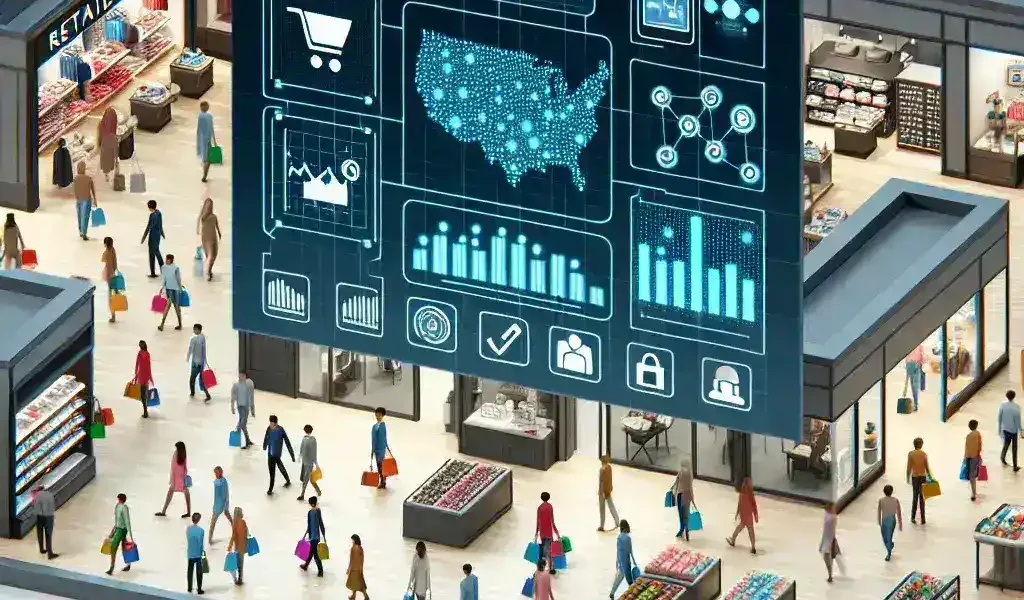Introduction
In an era where technology is reshaping our shopping experiences, Amazon Web Services (AWS) has taken a significant leap by piloting AI-powered retail analytics platforms in U.S. malls. This initiative promises to revolutionize the retail sector, providing valuable insights for mall operators and retailers alike. By harnessing the power of artificial intelligence, AWS aims to enhance customer engagement, optimize inventory management, and ultimately drive sales in physical retail spaces.
The Rise of AI in Retail
The retail industry has witnessed a seismic shift as businesses increasingly turn to technology to stay competitive. AI is at the forefront of this transformation, offering solutions that were once unimaginable. With machine learning algorithms and advanced data analytics, retailers can now understand consumer behavior at a granular level.
Historical Context
The adoption of AI in retail is not entirely new. For years, companies have been utilizing data analytics for market research and customer profiling. However, the introduction of cloud computing and big data has accelerated this trend, allowing for more sophisticated data processing and real-time analytics. AWS has been a key player in this evolution, providing scalable solutions that empower retailers to harness their data effectively.
What AWS’s AI-Powered Retail Analytics Platforms Offer
AWS’s latest initiative involves a suite of AI-powered tools designed specifically for retail analytics. Here are some core offerings:
- Customer Insights: Using AI, retail analytics platforms can analyze shopping patterns, preferences, and behaviors, allowing retailers to tailor their offerings to meet customer demands.
- Inventory Optimization: Real-time data analytics helps retailers manage their stock levels more efficiently, reducing waste and ensuring that popular products are always available.
- Sales Forecasting: Machine learning models can predict future sales trends, enabling retailers to make informed decisions about promotions, restocking, and merchandising strategies.
- Personalized Marketing: By leveraging customer data, retailers can create targeted marketing campaigns that resonate with their audience, enhancing engagement and driving conversions.
The Pilot Program in U.S. Malls
The pilot program launched by AWS in various U.S. malls aims to test these innovative platforms in real-world scenarios. By collaborating with select retailers and mall operators, AWS is gathering data to refine its offerings and demonstrate the tangible benefits of AI in retail.
Real-World Examples
One of the participating malls in the pilot program reported a significant increase in foot traffic after implementing AWS’s analytics tools. By understanding peak shopping times and customer demographics, the mall was able to optimize its layout and promotional activities. Retailers within the mall also benefitted from personalized marketing campaigns that led to a notable uptick in sales.
Feedback from Participants
Feedback from retailers involved in the pilot has been overwhelmingly positive. Many noted that the insights gained from the analytics platforms allowed them to make data-driven decisions that enhanced customer satisfaction. According to a store manager, “The ability to see what our customers are looking for in real-time has completely changed how we operate. We can adjust our inventory and marketing strategies on the fly, which has resulted in increased sales.”
Pros and Cons of Implementing AI in Retail
Pros
- Enhanced Customer Experience: With better insights, retailers can tailor their services to meet customer expectations, leading to higher satisfaction and loyalty.
- Increased Efficiency: Automation of data analysis reduces the time and effort required for decision-making, allowing retailers to focus on strategy.
- Better Inventory Management: Real-time analytics help retailers stock the right products at the right times, reducing excess inventory and associated costs.
Cons
- Data Privacy Concerns: With the increased use of customer data comes the responsibility to protect that data. Retailers must ensure compliance with regulations to maintain consumer trust.
- High Initial Costs: Implementing AI solutions can require significant investment, which may be a barrier for smaller retailers.
- Dependence on Technology: Over-reliance on AI may lead to a loss of the human touch in customer service, which can negatively impact customer relationships.
Future Predictions for AI in Retail
Looking ahead, the integration of AI in retail is expected to deepen. As AWS and other tech giants continue to refine their offerings, we can anticipate even more innovative solutions that enhance customer experience and streamline operations. The future of retail may include:
- Hyper-Personalization: AI will enable retailers to create even more tailored shopping experiences, predicting individual preferences and suggesting products.
- Augmented Reality Shopping: Combining AI with augmented reality could transform online shopping experiences, allowing customers to visualize products in their own spaces.
- Seamless Omnichannel Experiences: AI will continue to bridge the gap between online and offline shopping, providing customers with a consistent and integrated experience across all platforms.
Cultural Relevance
The cultural implications of AWS’s foray into AI-powered retail analytics are profound. As shopping habits evolve, so too does the necessity for retailers to adapt to social trends and consumer preferences. With the rise of e-commerce, brick-and-mortar stores face significant pressure to offer unique in-store experiences that online shopping cannot replicate. AI can help retailers fulfill these demands by providing insights into what customers value most, whether it be personalized services, unique product offerings, or immersive shopping experiences.
Conclusion
Amazon Web Services is pioneering a new era in retail through its AI-powered analytics platforms, offering a glimpse into the future of shopping in U.S. malls. As retailers embrace these innovative solutions, the potential for enhancing customer experiences and driving sales becomes increasingly evident. While challenges exist, the benefits of implementing AI in retail far outweigh the drawbacks. The pilot program serves as a testament to the changing landscape of retail and the crucial role that technology will play in shaping its future.

